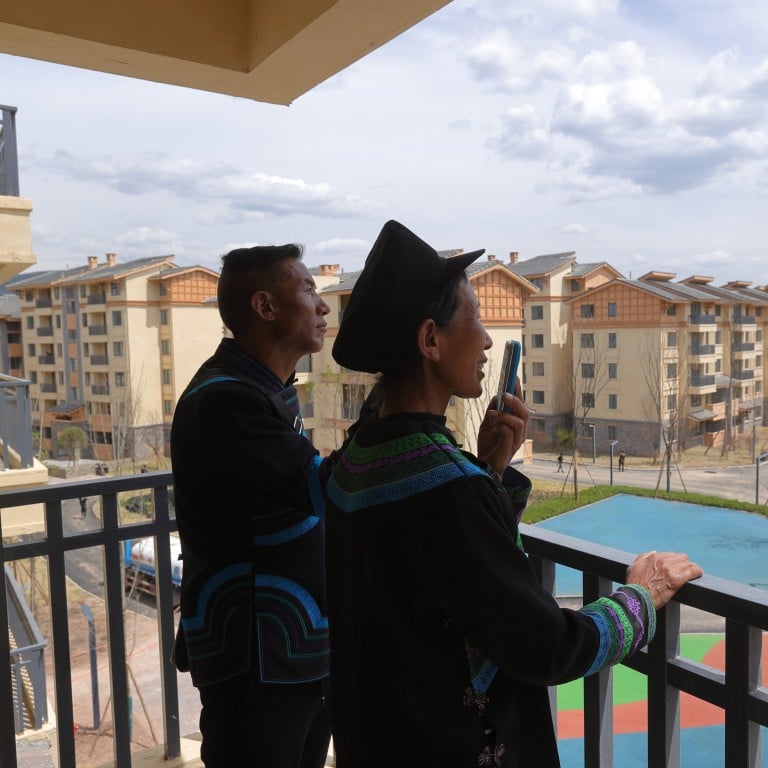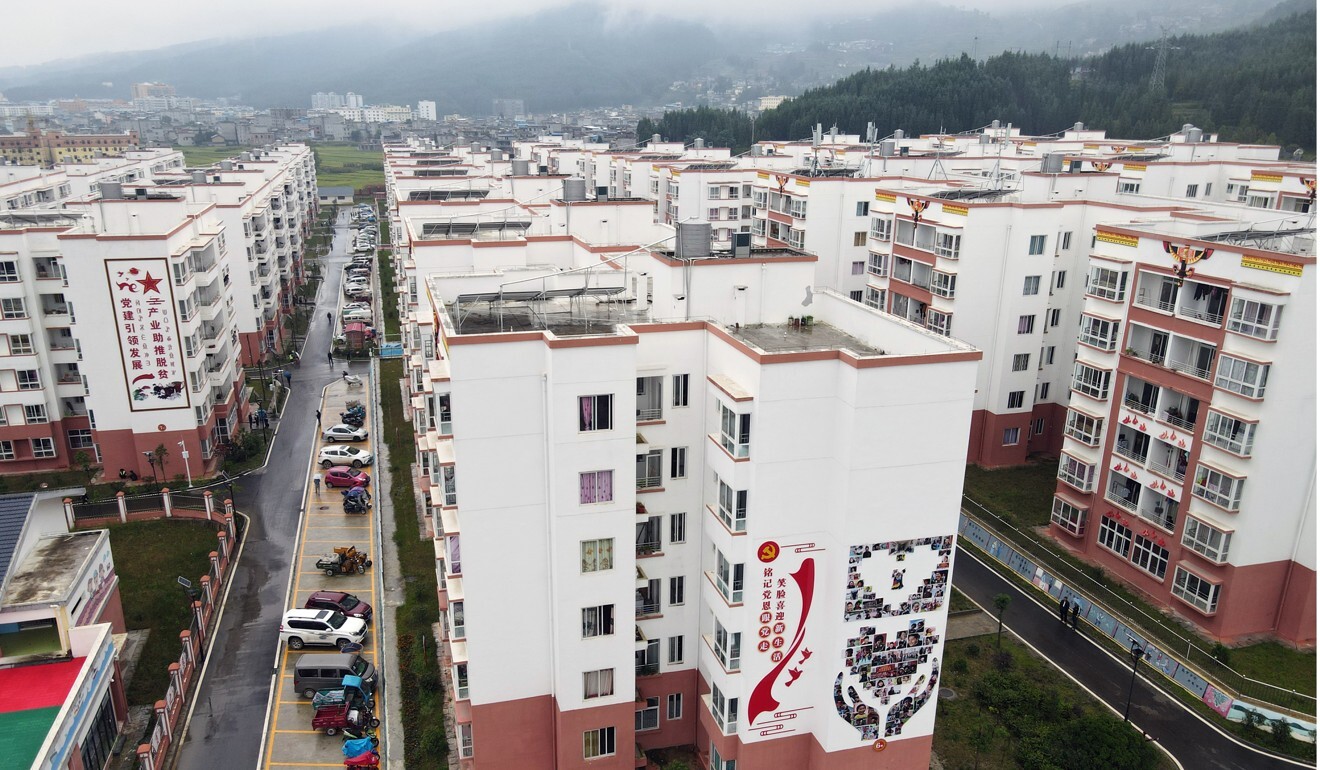
China has rehomed 9.6 million people since 2015 under plan to eliminate extreme poverty, government says
- Beijing’s grand scheme is now in a new phase, ‘which is about providing support to the people who have been relocated’, official says
- But not everyone who has been found a new home is happy, and many miss their old way of life, academic says
Wang Aiwen, a vice-minister for civil affairs, said 35,000 communities providing homes, schools, jobs and medical services had been established to accommodate them.
“This is our contribution to the global effort to eradicate poverty,” he told a press conference.
“We are now into a new phase, which is about providing support to the people who have been relocated. Specifically, there are two important questions: can we make sure the programme is sustainable, and will it enable people to get rich?” Wang said.
The Chinese government set 2020 as a target for eliminating extreme poverty across the country, and since 2015 has spent more than 600 billion yuan (US$91 billion) on relocation programmes alone.

Sun Guangxuan, an official from the National Development and Reform Commission who is involved in the poverty alleviation scheme, said a key element of the second phase was to provide training for people to help them find work in their new communities.
Speaking at the same press briefing as Wang, he said the Ministry of Human Resources and Social Security was providing job training in communities of 800 people or more, and had assigned teams to help people find work.
“Through such efforts, [we want] to ensure that people can find work as soon as possible so they can adapt to their new lives after relocation,” he said.

Li Bo, deputy head of the northwest rural research and revitalisation centre at Xian University of Architecture and Technology, said each household would have to pay only about 10,000 yuan for their new homes, a fraction of their true value.
This had made it much easier for Communist Party officials to persuade people to move, he said.
“The state is responsible for all the costs, and officials are more willing to do the work, but how to sustain people’s livelihoods after relocation is always a problem,” he said. “This depends on the local economy and whether there is scope to create new jobs, new businesses and new industries.”
If there were no employment opportunities for people in their new communities they might move on to other cities in search of jobs, which would diminish the value of the relocation programme, he said.

Kong Deji, an academic at China Agricultural University, said many people struggled to adapt to being relocated.
“In Yunnan, there are people who feel very uncomfortable in their new homes because they can’t smoke bacon, and would rather go back to their crumbling old homes,” he said.
Li agreed that relocation could be a problem for some families.
“Sometimes people cannot adjust. They find the new flats less comfortable than their rural homes, but there is no way back because their old homes have been demolished,” he said.
“The benefit of the relocation programme is that it solves the problem of children who have been left behind [after their parents have left to find work in the city] having to manage going to school, while looking after their younger siblings and grandparents.”
China’s push to educate people out of poverty starts with free school
A Beijing-based anthropologist, who asked not to be named due to sensitivity of the issue, said meeting people’s religious needs could be a delicate matter.
“I have been to some families who have been moved to their beautiful new homes, which even have grape arbors and courtyards for livestock, but there are no places for them to worship,” he said.

